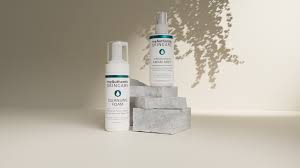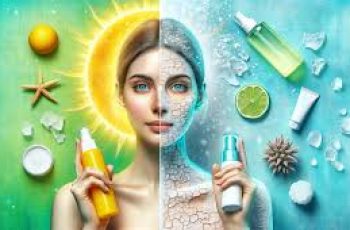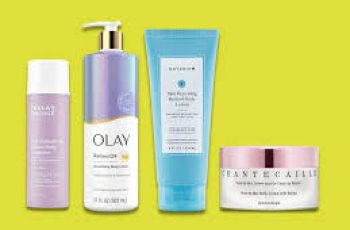
Hypochlorous Acid for Acne: A Gentle but Powerful Skincare Solution
If you’ve ever dealt with acne, you know how frustrating it can be to find a treatment that actually works—especially one that doesn’t leave your skin red, irritated, or dried out. Lately, a new contender has been making waves across social media, particularly on TikTok’s #SkinTok: hypochlorous acid. While the name might sound intimidating (it is an acid, after all), this skincare ingredient is actually one of the gentlest and most skin-friendly treatments available.
In this comprehensive guide, we’ll explore everything you need to know about hypochlorous acid: what it is, how it works, its benefits for acne-prone skin, how it compares to traditional acne treatments, and how to incorporate it into your routine. We’ll also highlight potential side effects and dermatologist-recommended products to help you decide if hypochlorous acid is the missing piece in your skincare regimen.
What Is Hypochlorous Acid?
Hypochlorous acid (HOCl) is a naturally occurring compound produced by white blood cells as part of the immune response. It plays a crucial role in fighting off infection, killing bacteria, and managing inflammation. In simple terms, it’s one of your body’s built-in defense mechanisms.
Dr. Azadeh Shirazi, a board-certified dermatologist, explains, “Hypochlorous acid is a substance our bodies naturally produce within our white blood cells. It’s known for its antibacterial and anti-inflammatory properties.” This is exactly why it’s gaining so much traction in the skincare world—especially for acne treatment.
Why Is Hypochlorous Acid Trending in Skincare?
Although hypochlorous acid has been used in medical and wound care settings for years, its presence in mainstream skincare is relatively recent. It’s showing up in everything from facial sprays to cleansers and is praised for being effective yet incredibly gentle.
Its rise in popularity can be attributed to a growing demand for “skinimalism”—a minimalist approach to skincare that prioritizes gentle, multipurpose products over harsh, aggressive treatments. On platforms like TikTok and Instagram, influencers and dermatologists alike have been raving about hypochlorous acid as a refreshing, healing mist for acne-prone and sensitive skin types.
Benefits of Hypochlorous Acid for Acne and Skin Health
Hypochlorous acid offers several benefits, particularly for those struggling with acne, skin sensitivity, or chronic inflammation. Here’s a breakdown of what it can do:
1. Kills Acne-Causing Bacteria
The most important benefit for acne sufferers is its ability to kill bacteria. Acne is largely caused by a buildup of oil, dead skin cells, and Cutibacterium acnes (formerly known as Propionibacterium acnes), a type of bacteria that thrives in clogged pores. Hypochlorous acid helps reduce bacterial presence without disrupting the skin’s natural barrier or microbiome.
2. Reduces Redness and Inflammation
Acne isn’t just about pimples—it often comes with redness, swelling, and irritation. Hypochlorous acid helps calm the skin by reducing inflammation and promoting tissue repair. Dr. Marisa Garshick, another board-certified dermatologist, notes that it’s particularly useful for those with inflamed or cystic acne.
3. Speeds Up Wound Healing
Because it is commonly used in wound care, hypochlorous acid helps accelerate the healing process. Whether you’ve picked at a blemish (we’ve all been there) or are recovering from a breakout, this ingredient can promote faster recovery and minimize scarring.
4. Soothes Sensitive or Reactive Skin
Hypochlorous acid is non-toxic, non-comedogenic, and alcohol-free, making it ideal for individuals with sensitive or reactive skin. Unlike more aggressive acne treatments such as benzoyl peroxide or retinoids, HOCl doesn’t dry out or irritate the skin.
5. Safe for Use Around the Eyes
Unlike many acne-fighting products, hypochlorous acid is safe for use around the delicate eye area, making it a great option for full-face application—even if your breakouts appear near sensitive regions.
Hypochlorous Acid vs. Traditional Acne Ingredients
You might be wondering how HOCl compares to more familiar acne-fighting ingredients like salicylic acid, glycolic acid, benzoyl peroxide, or retinoids. Here’s a quick comparison:
Ingredient Function Pros Cons
Hypochlorous Acid Kills bacteria, reduces inflammation, heals skin Gentle, non-irritating, multi-functional Less effective for deep cystic acne when used alone
Salicylic Acid Exfoliates and unclogs pores Great for blackheads and oily skin Can cause dryness and peeling
Glycolic Acid Exfoliates and brightens Improves skin texture and tone May sting or irritate sensitive skin
Benzoyl Peroxide Kills acne bacteria Fast-acting, effective Can cause dryness, redness, bleaching of fabrics
Retinoids Increases cell turnover, reduces oil production Highly effective long-term Can cause purging, dryness, sun sensitivity
In short, hypochlorous acid is best used as a complementary treatment—especially if your skin can’t tolerate harsher options.
Are There Any Side Effects?
One of the most appealing things about hypochlorous acid is its low risk of side effects. According to Dr. Garshick, it is “generally safe for routine use without causing irritation.”
However, high concentrations—typically around 500 parts per million (ppm)—can lead to skin irritation in rare cases. Most skincare formulations are diluted to around 100-200 ppm, which is safe for regular use even on sensitive skin. As always, patch testing is recommended when introducing any new product into your skincare routine.
How to Use Hypochlorous Acid in Your Routine
Using hypochlorous acid is simple and versatile. Most products come in a spray form, which makes them easy to apply throughout the day. Here’s how to work it into your regimen:
Morning and Night:
Cleanse: Wash your face with a gentle cleanser.
Apply Hypochlorous Acid: Spray directly onto your face or onto a cotton pad, and gently press into the skin.
Moisturize: Lock in hydration with a moisturizer suited to your skin type.
SPF (Morning only): Always finish your morning routine with sunscreen.
Throughout the Day:
Use as a refreshing mist after workouts, during hot weather, or whenever your skin feels irritated.
Pro tip: You can also use it to sanitize your phone screen or makeup brushes to prevent acne-causing bacteria buildup.
Recommended Products Containing Hypochlorous Acid
If you’re interested in trying hypochlorous acid, here are some dermatologist-recommended options to consider:
Tower 28 Beauty SOS Daily Rescue Facial Spray – A cult favorite that’s perfect for calming irritation and breakouts.
Prequel Universal Skin Solution Dermal Spray – Offers multipurpose support for skin health.
SkinSmart Antimicrobial Facial Cleanser – Great for acne-prone skin, especially post-workout.
Eczemol by Loma Lux – Formulated for eczema but also suitable for acne-prone and sensitive skin types.
Always check the concentration and look for products labeled as suitable for acne-prone or sensitive skin.
Who Should Use Hypochlorous Acid?
Hypochlorous acid is especially beneficial for:
People with sensitive or reactive skin
Individuals who experience irritation from other acne treatments
Teenagers looking for gentle yet effective skincare
Athletes or gym-goers needing a post-workout refresh
Anyone wanting a multifunctional, no-fuss solution for breakouts and inflammation
Final Thoughts: Is Hypochlorous Acid Worth Adding to Your Routine?
Hypochlorous acid may not be the most aggressive acne treatment out there, but what it lacks in intensity, it makes up for in gentleness, versatility, and skin barrier support. It’s an ideal addition for anyone with sensitive, acne-prone, or inflamed skin, and it plays well with other ingredients in your routine.
If your current skincare lineup leaves your skin feeling stripped, red, or irritated, hypochlorous acid may be just the calming influence it needs. While it shouldn’t fully replace traditional acne treatments for more severe cases, it can certainly enhance your routine and support your skin’s natural healing process.


